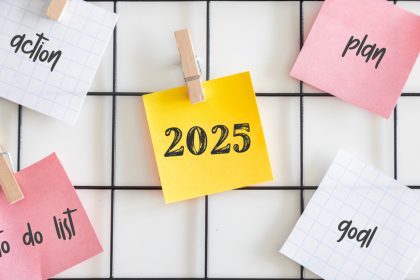Social media notifications ping constantly, delivering an endless stream of other people’s highlight reels directly into our daily lives. A former colleague just landed their dream job, a childhood friend bought their third investment property, and that acquaintance from college seems to be living their best life in exotic locations around the world. Meanwhile, you’re sitting in your current reality, feeling increasingly inadequate with each scroll through these carefully curated success stories.
The phenomenon of letting other people’s achievements dampen our own spirits has reached epidemic proportions in our hyperconnected world. Every platform seems designed to showcase everyone else’s wins while amplifying our own perceived shortcomings. The constant comparison creates a toxic cycle where external validation becomes the primary measure of personal worth, leaving countless individuals feeling perpetually behind in life’s imaginary race.
This destructive pattern doesn’t just steal joy from present moments – it actively sabotages future success by creating a mindset focused on lack rather than possibility. When someone else’s promotion triggers feelings of inadequacy rather than inspiration, it reveals how deeply comparison has infiltrated our relationship with personal achievement and self-worth.
Understanding the comparison trap mechanics
The human brain evolved to make social comparisons as a survival mechanism, helping our ancestors understand their place within tribal hierarchies. However, modern society has weaponized this natural tendency, creating environments where comparison becomes constant and often unfair. Social media platforms amplify this effect by presenting carefully edited versions of reality that bear little resemblance to the full spectrum of human experience.
The comparison trap operates through several psychological mechanisms that make it particularly insidious. First, it relies on incomplete information – seeing someone’s highlight reel while knowing the full story of our own struggles and setbacks. This creates an inherently skewed perspective where others appear to have effortless success while our own achievements feel hard-won and insufficient.
The trap also exploits our tendency toward selective attention. When we’re already feeling insecure about our progress in life, we become hypersensitive to evidence that supports our negative self-perception. Every success story becomes proof of our own inadequacy rather than evidence of what’s possible with effort and persistence. This selective focus creates a distorted reality where other people’s wins feel like personal losses.
Recognizing emotional triggers and patterns
Breaking free from the comparison cycle requires developing awareness of specific triggers and emotional patterns that activate jealousy and resentment. Different types of success announcements affect people differently based on their current life circumstances and deepest insecurities. Career achievements might trigger someone struggling professionally, while relationship milestones could devastate someone navigating loneliness or recent heartbreak.
The timing of exposure to others’ success often determines the emotional impact. Viewing celebratory posts during moments of personal struggle or disappointment creates particularly intense negative reactions. A promotion announcement hits differently when you’ve just been passed over for advancement, and engagement photos feel more painful when your own relationship recently ended.
Physical and emotional states also influence susceptibility to comparison-triggered mood drops. Fatigue, stress, hormonal fluctuations, and existing mental health challenges all amplify negative reactions to others’ achievements. Understanding these vulnerability factors helps create strategies for managing exposure and emotional responses during particularly sensitive periods.
Reframing success as inspiration rather than competition
The most powerful antidote to comparison-induced misery involves fundamentally shifting how we interpret other people’s achievements. Instead of viewing success as a finite resource where someone else’s win diminishes our own possibilities, we can choose to see each success story as proof of what’s achievable in our shared reality.
This reframing process requires conscious effort and practice. When the initial pang of jealousy strikes, pause and ask different questions. What specific strategies might have contributed to this person’s success? What skills or qualities did they develop along the way? How might their journey offer insights that could inform your own path forward?
The goal isn’t to dismiss or minimize genuine feelings of disappointment or frustration. Instead, it’s about creating space between the initial emotional reaction and the meaning we assign to others’ achievements. Someone else’s promotion doesn’t mean fewer opportunities exist for everyone else – it means promotions are possible and demonstrates what companies value in advancing employees.
Building unshakeable internal validation systems
The deepest solution to comparison-triggered unhappiness lies in developing robust internal validation systems that don’t depend on external circumstances or other people’s achievements. This involves creating personal definitions of success that align with individual values, priorities, and life circumstances rather than societal expectations or peer achievements.
Internal validation systems require regular maintenance and conscious cultivation. This might involve daily practices like journaling about personal progress, celebrating small wins that others might not notice, and regularly reconnecting with core values and long-term goals. The practice helps build emotional resilience against the inevitable ups and downs of comparison-heavy environments.
Creating meaningful metrics for personal success helps combat the tendency to measure progress against others’ timelines and achievements. These might include personal growth indicators, skill development milestones, relationship quality improvements, or contributions to causes that matter deeply. When internal scoreboards become more important than external comparisons, other people’s success naturally becomes less threatening.
Developing genuine celebration skills
One of the most transformative practices involves learning to authentically celebrate other people’s achievements without making them about personal inadequacy. This skill requires emotional maturity and conscious effort but pays enormous dividends in relationship quality and personal peace of mind.
Genuine celebration starts with recognizing that someone else’s joy doesn’t diminish the amount of happiness available to everyone else. Joy is not a limited resource – celebrating others’ wins actually increases the total amount of positive energy in shared social circles. When we become known as people who genuinely support others’ success, we create environments where our own achievements will be celebrated in return.
The practice of celebration also serves as powerful success visualization. By enthusiastically supporting others’ achievements, we’re essentially rehearsing what it feels like to be surrounded by success energy. This creates positive associations with achievement rather than the negative associations that develop when success triggers jealousy and resentment.
Creating protective boundaries around consumption
While developing internal resilience remains the ultimate goal, creating temporary protective boundaries around success-story consumption can provide necessary relief during particularly vulnerable periods. This might involve unfollowing certain social media accounts, temporarily avoiding networking events, or limiting conversations about career achievements during personal setbacks.
These boundaries aren’t meant to be permanent or comprehensive – the goal is strategic protection rather than complete avoidance. Sometimes the healthiest response to overwhelming comparison triggers involves stepping back from certain environments until internal resilience strengthens sufficiently to handle exposure without emotional devastation.
The key lies in making conscious choices about consumption rather than passively absorbing whatever content algorithms serve up. Curating social media feeds to include more diverse content, limiting time spent on platforms that consistently trigger negative comparisons, and choosing to engage with success stories during emotionally stable moments all help create healthier relationships with others’ achievements.
Transforming envy into actionable motivation
The energy currently wasted on jealousy and resentment can be redirected into productive action that actually advances personal goals and dreams. This transformation requires conscious choice and practice but offers one of the most powerful pathways from comparison-induced misery to genuine progress.
When someone else’s success triggers strong emotional reactions, use that energy as information about what you actually want in life. The intensity of jealousy often reveals deep desires that haven’t been fully acknowledged or actively pursued. Instead of dwelling in negative emotions, channel that passion into research, planning, and action steps that move you closer to similar achievements.
This approach transforms other people’s success stories from sources of pain into valuable resources for strategic planning. Their journeys offer case studies in what works, potential pitfalls to avoid, and realistic timelines for achieving similar goals. The emotional energy that once fueled resentment becomes the driving force behind meaningful progress toward personal aspirations.
Success stories become less threatening when they’re viewed as proof of possibility rather than evidence of personal inadequacy. Every achievement announcement becomes an encouraging reminder that dreams can become reality with consistent effort, strategic planning, and persistent commitment to growth and development.

















